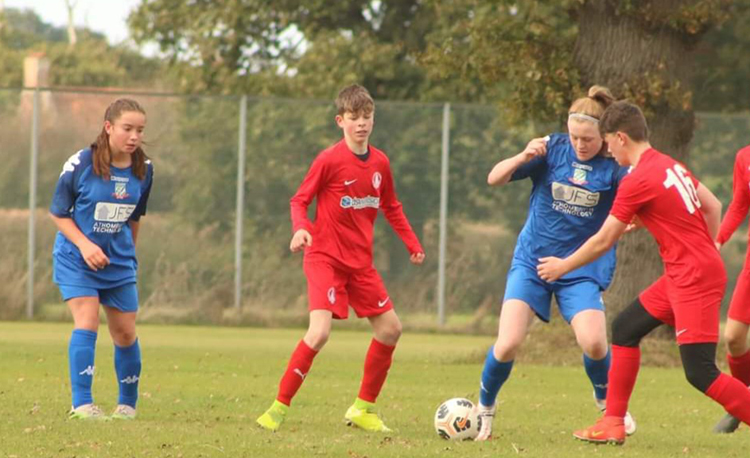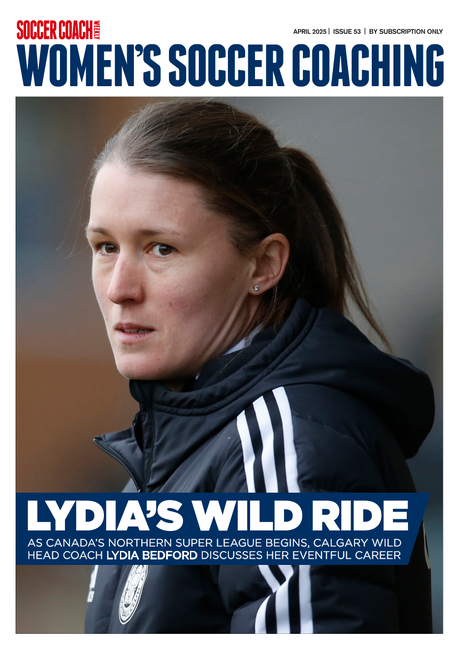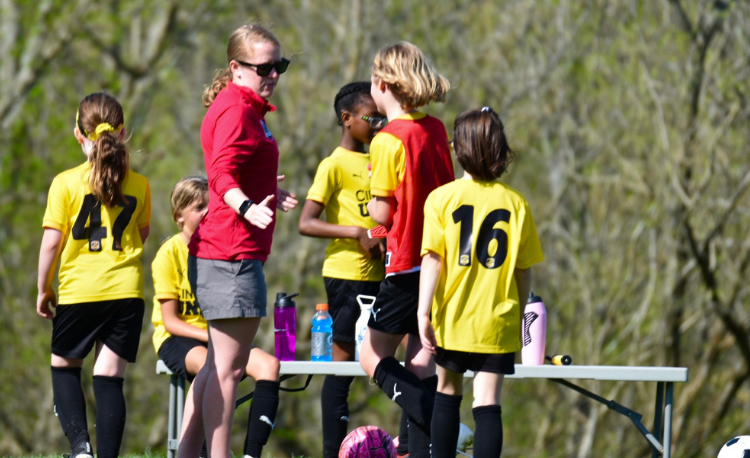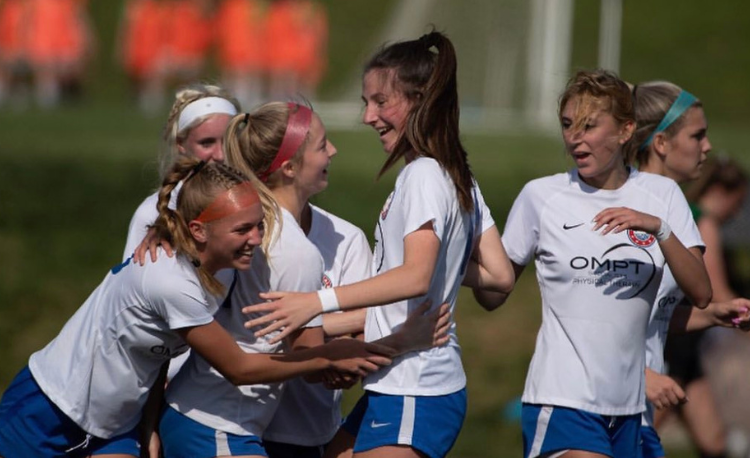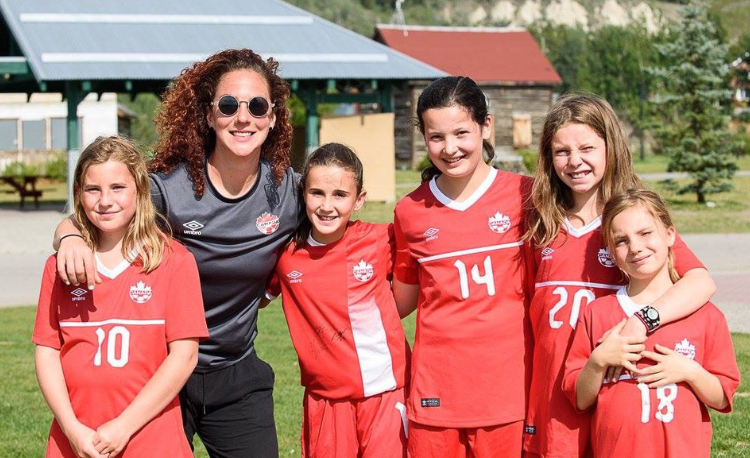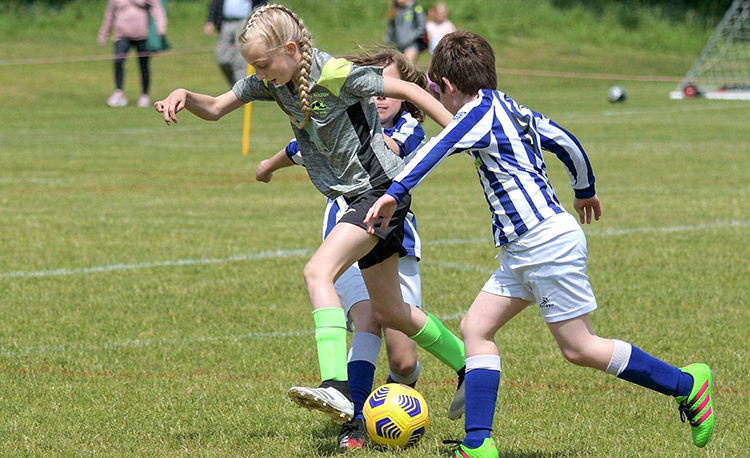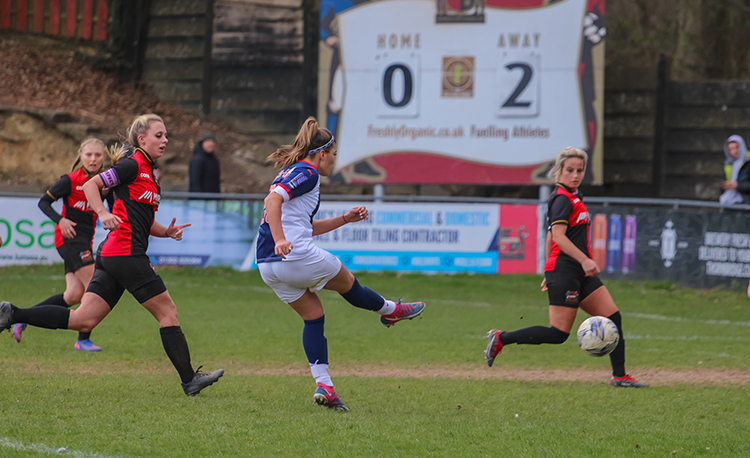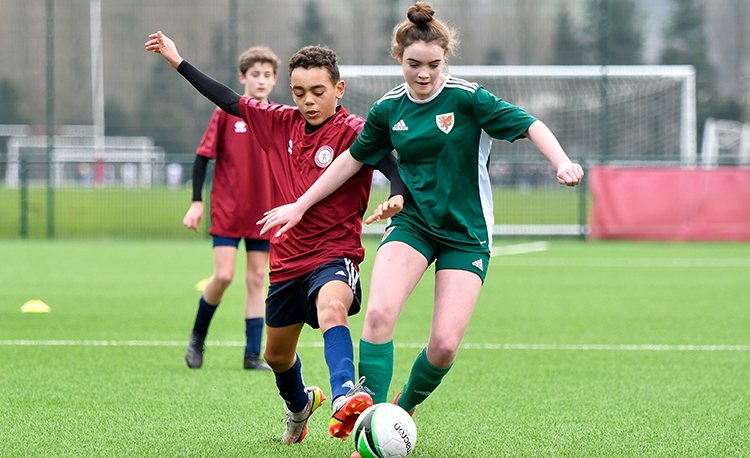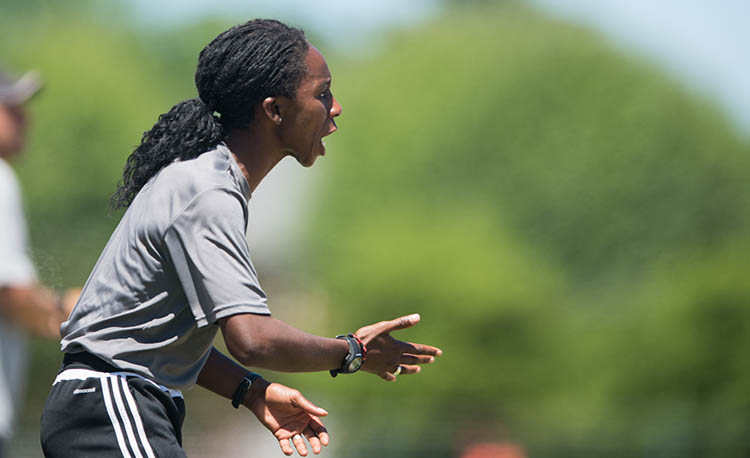You are viewing
1 of your 3 free articles
The challenges facing girls' teams competing in boys' leagues
A girls’ team in England have been playing in a boys’ league for four years. But, as coach John Barrett explains, they have had to endure some terrible jibes
Four years ago, we at Gorleston Town Ladies decided to enter a girls’ team into our local boys’ league.
This was made possible with the help of the local Football Association in Norfolk, and the Norfolk and Suffolk Youth League, and the team was given special dispensation to play a year-group down.
Our first season was non-competitive and, on the whole, it was a big positive, with some positive football played, and a few wins along the way. And the girls got plenty of plaudits for the way they conducted themselves on and off the pitch.
Our second season was again a tough challenge, but we started to pick up more wins and made the League Cup semi-finals.
It was during this campaign that we started hearing some unfortunate remarks.
One opposing manager saw our players and said to his goalkeeper: "I hope you brought your deckchair - we’re playing a team of girls". The player laughed.
Within 10 minutes, the girls were winning 4-0. At half time I said: "Good job you didn’t bring that chair". At the end of the game, I went to shake hands and was completely blanked by all involved.
Comments like this continued throughout the season, with opponents also accusing referees of not giving them decisions because “it’s a bunch of girls”.
As hard as it is to hear these remarks, we found the best way to combat them was to let our football do the talking. Not once did any of the girls react to these comments.
The following season we agreed to move up to our correct age group and were placed in Division 3 at U13s.
The season was cut short due to Covid-19, but the girls managed to finish as league winners, going unbeaten.
That season went by with only one incident, where an opposition player lost his cool and kicked out at one of the girls, swearing at her.
We were then placed into Division 1 for this current season, where we also moved to 11-a-side football.
Despite not winning any games, the girls have played their hearts out and again received plaudits from opposition managers and parents.
"One manager said: ’Hope you brought a deckchair, we’re playing a team of girls...’"
On the whole, the experience of playing against boys’ teams has benefited the girls, with competitive football week-in, week-out and the positives outweigh the negatives.
We are looking at having one more year in a boys’ league at U15s. Even though the physical side of playing boys is becoming clearer to see, the girls all want to have another season to push themselves, which is a massive credit to them.
While playing against boys has been a fantastic challenge for my players and undoubtedly improved them in a number of areas, hopefully not everyone would have the same negative experiences myself and the girls have had.
But I would advise any coach of girls who is looking at their team competing in a boys’ league to have it in their minds that they will need to have thick skin, and not react to any negative comments or actions - let your football do the talking.
I have found that by doing this, you eventually do earn the respect of opposition managers, players and parents alike.
Related Files
Newsletter Sign Up
Newsletter Sign Up
Discover the simple way to become a more effective, more successful soccer coach
In a recent survey 89% of subscribers said Women's Soccer Coaching makes them more confident, 91% said Women's Soccer Coaching makes them a more effective coach and 93% said Women's Soccer Coaching makes them more inspired.
*includes 3 coaching manuals
Get Inspired
All the latest techniques and approaches
Women's Soccer Coaching offers proven and easy to use soccer drills, coaching sessions, practice plans, small-sided games, warm-ups, training tips and advice.
We've been at the cutting edge of soccer coaching since we launched Soccer Coach Weekly in 2007, creating resources for the grassroots youth coach, following best practice from around the world and insights from the professional game.
